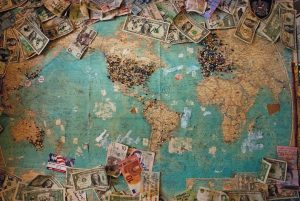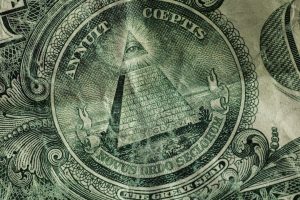The foreign exchange (forex) market is the largest and most liquid financial market in the world. It is where currencies are traded 24 hours a day, five days a week. The forex market is made up of a variety of participants, including banks, corporations, governments, and individuals. However, not all individuals or entities can be considered players in the forex market. In this article, we will explore which of the following would not be considered a player in the foreign exchange (forex) market.
The forex market is a decentralized market, which means that it does not have a physical location or a central exchange. Instead, it is a network of banks, brokers, and dealers that are connected electronically. The participants in the forex market trade currencies for a variety of reasons, such as hedging against currency risk, speculating on currency movements, and conducting international trade.
The forex market is open to anyone who wants to participate, but not everyone can be considered a player in the market. The following are some examples of individuals or entities that would not be considered players in the forex market:
1. Tourists
Tourists are not considered players in the forex market because they are not trading currencies for business or investment purposes. When tourists travel to another country, they need to exchange their home currency for the local currency to pay for goods and services. However, their transactions are usually small and infrequent, and they do not affect the overall demand and supply of currencies in the market.
2. Students
Students are not considered players in the forex market because they are not trading currencies for business or investment purposes. Students who study abroad may need to exchange their home currency for the local currency to pay for tuition and living expenses. However, their transactions are usually small and infrequent, and they do not affect the overall demand and supply of currencies in the market.
3. Retail customers
Retail customers are individuals who trade currencies through a retail forex broker. They are not considered players in the forex market because their trades are usually small and do not have a significant impact on the market. Retail customers trade currencies for speculative purposes, such as trying to profit from currency movements. However, their trades are usually executed through a broker, and they do not have direct access to the interbank market where the major players trade.
4. Charities
Charities are not considered players in the forex market because they are not trading currencies for business or investment purposes. Charities may receive donations from different countries and need to exchange the currencies into their local currency. However, their transactions are usually small and infrequent, and they do not affect the overall demand and supply of currencies in the market.
5. Small businesses
Small businesses are not considered major players in the forex market because their transactions are usually small and do not have a significant impact on the market. Small businesses may need to exchange currencies to conduct international trade, but their transactions are usually executed through a bank or broker, and they do not have direct access to the interbank market.
In conclusion, the forex market is a complex and diverse market that is made up of a variety of participants. However, not all individuals or entities can be considered players in the market. Tourists, students, retail customers, charities, and small businesses are some examples of groups that would not be considered major players in the forex market. The major players in the forex market are banks, corporations, governments, and hedge funds, who trade currencies in large volumes and have a significant impact on the market.





